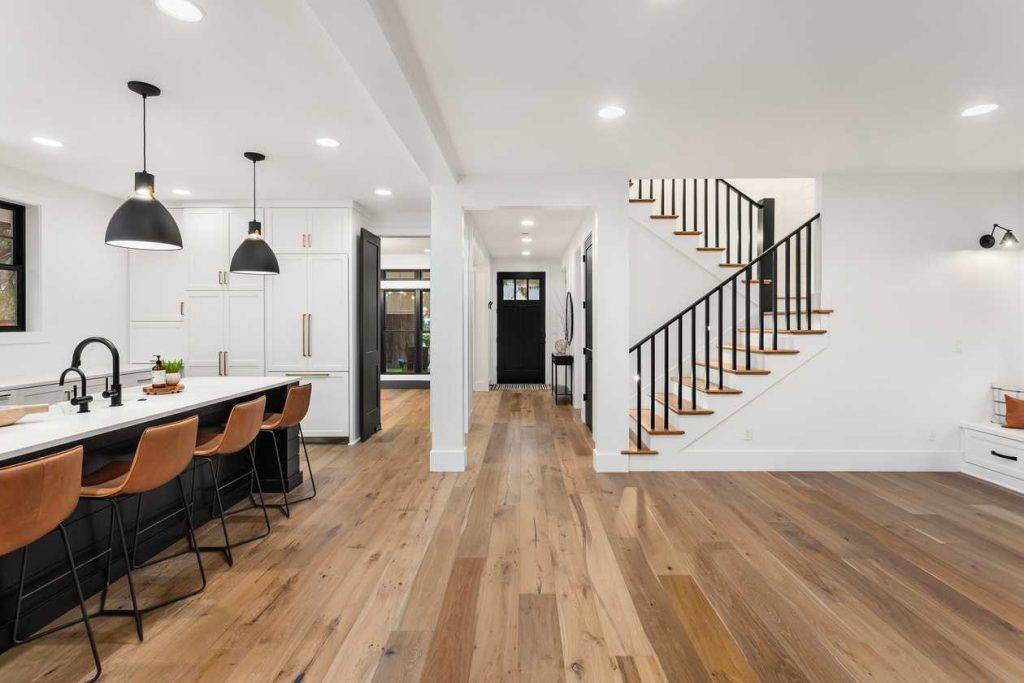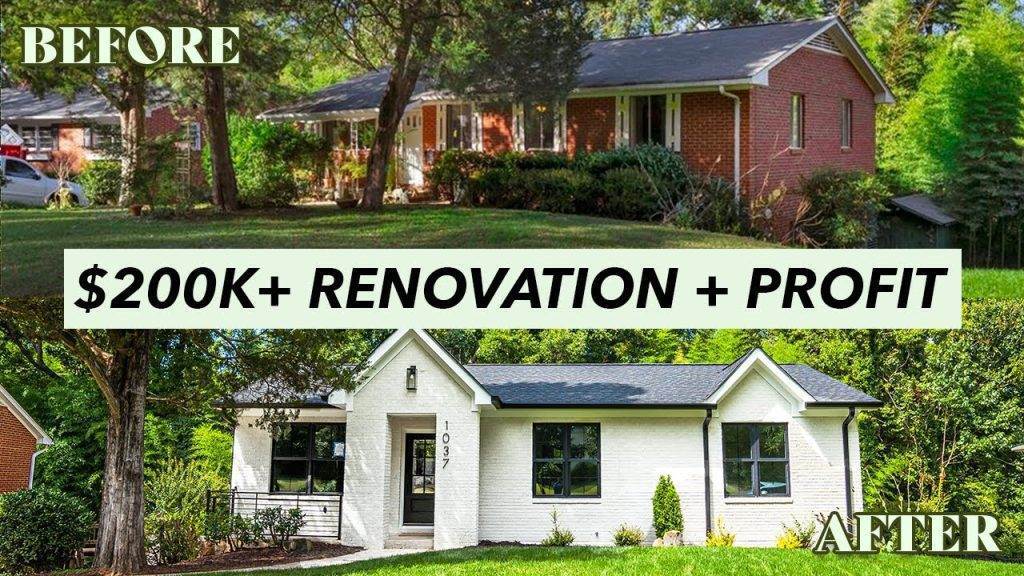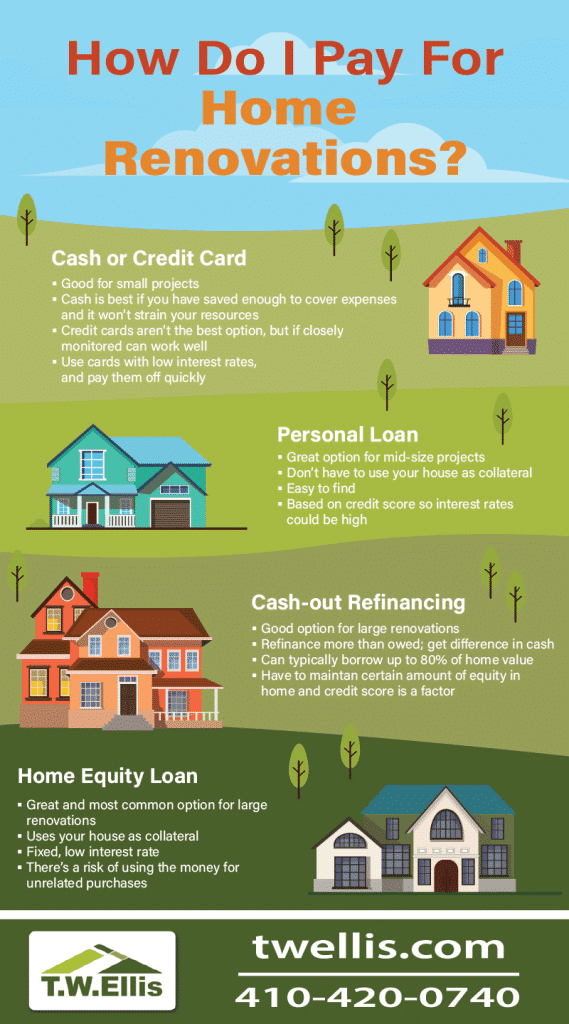If you have ever wondered about the financial potential of renovating houses, this article aims to shed some light on the matter. We will explore the various factors that can influence your earnings in the world of house renovation, including location, property type, and your level of expertise. By the end, you will have a clearer understanding of the financial opportunities that lie within the realm of house renovation.
Factors that Determine Profitability
When it comes to renovating houses, profitability is a key consideration. There are several factors that can impact the potential profit you can make from a renovation project. Understanding these factors is essential for making informed decisions and maximizing your returns. In this article, we will explore five primary factors that can determine the profitability of a renovation project: location, cost of acquisition, renovation costs, timeframe, and market conditions.
1. Location Factors
The location of a property plays a crucial role in its profitability. Different areas have varying real estate markets, neighborhood desirability, proximity to amenities, and historical property value. These factors can significantly impact the final selling price and the potential profit you can make from a renovation project.
Local Real Estate Market
Understanding the local real estate market is essential for determining the potential profit of a renovation project. Is the market hot or cold? Are prices rising or declining? By analyzing market trends, you can assess whether the current conditions are favorable for selling renovated properties and maximizing your profit.
Neighborhood Desirability
The desirability of the neighborhood where the property is located can significantly impact its profitability. Factors such as safety, proximity to schools, parks, and shopping centers, and overall livability can influence the final selling price and demand for the renovated property. Renovating a house in a highly desirable neighborhood can potentially yield a higher profit.
Proximity to Amenities
Properties that are located near amenities such as public transportation, restaurants, and entertainment venues often attract more potential buyers. The convenience of having these amenities nearby can make a property more appealing, increasing its market value and potential profit.
Historical Property Value
Examining the historical property value of the area can provide valuable insights into the potential profitability of a renovation project. Have property values been steadily increasing over the years? Are there any signs of decline? Understanding the historical property value trends can help you assess the potential for a profitable renovation.

This image is property of hips.hearstapps.com.
2. Cost of Acquisition Factors
The cost of acquiring the property is another critical factor that can impact the profitability of a renovation project. From the purchase price to closing costs and financing expenses, understanding these factors is essential for calculating your potential profit.
Purchase Price
The purchase price of the property is the initial investment that you need to consider. Negotiating a favorable purchase price is crucial for maximizing your potential profit. Conducting thorough market research and analyzing comparable sales in the area can help you determine the fair market value of the property and negotiate an appropriate purchase price.
Closing Costs
Closing costs are expenses associated with the transfer of ownership of the property. These costs typically include attorney fees, title insurance, and lender fees. Depending on the location and the details of the transaction, closing costs can vary significantly. It is essential to account for these costs when calculating your potential profit.
Financing Expenses
If you are financing the acquisition of the property, you need to consider the financing expenses. This includes interest payments, loan origination fees, and any other costs associated with securing financing. These expenses can impact your overall profitability, and it is crucial to carefully assess the terms and conditions of the financing arrangement.
Marketing and Agent Fees
When it comes time to sell the property, you may incur expenses related to marketing and hiring a real estate agent. These fees can vary depending on the marketing strategies implemented and the commission structure agreed upon with the agent. It is important to factor in these expenses when calculating your potential profit.
3. Renovation Costs Factors
Once you have acquired the property, the renovation costs are a significant consideration in determining the potential profitability. Various factors, such as the scope of the renovation, material and labor costs, permits and inspections, and unexpected expenses, can impact the overall renovation costs.
Scope of Renovation
The scope of the renovation refers to the extent of the improvements and updates you plan to make to the property. A more extensive renovation, such as replacing the roof, updating plumbing and electrical systems, and renovating the entire kitchen, will typically incur higher costs. It is important to carefully evaluate the scope of the renovation and consider its impact on your potential profit.
Material and Labor Costs
The cost of materials and labor can significantly impact the total renovation expenses. Conducting thorough research and obtaining multiple quotes from contractors and suppliers can help you estimate these costs more accurately. It is essential to carefully consider the quality of materials and the reputation of contractors while balancing the budget to maintain profitability.
Permits and Inspections
Depending on the extent of the renovation, you may need to obtain permits and undergo inspections to ensure compliance with local building codes and regulations. These costs can vary depending on the location and the specific requirements. It is crucial to factor in these costs when calculating the overall renovation expenses and potential profit.
Unexpected Expenses
Renovation projects often come with unexpected expenses that can impact profitability. From hidden structural issues to unforeseen delays, it is important to have a contingency budget to account for these unexpected expenses. Proper planning and budgeting can help minimize the impact of unforeseen costs on your potential profit.

This image is property of cdn.homeguide.com.
4. Timeframe Factors
The timeframe of a renovation project can impact its profitability. From the duration of the renovation to holding costs and unforeseen delays, understanding these factors is essential for managing your resources and maximizing your profit.
Renovation Timeline
The duration of the renovation project can impact the holding costs and the overall profitability. It is important to have a realistic timeline for completing the renovation to minimize the impact on your profit. Efficient project management and clear communication with contractors and suppliers can help ensure that the renovation stays on schedule.
Holding Costs
Holding costs refer to the expenses incurred while holding the property during the renovation process. These costs can include property taxes, insurance, utilities, and mortgage payments. The longer the renovation takes, the higher the holding costs will be, potentially reducing your overall profit. It is crucial to assess the holding costs and factor them into your profit calculations.
Opportunity Costs
The time and resources you invest in a renovation project have an opportunity cost. The longer you spend on a single project, the fewer opportunities you have to pursue additional projects and generate more profit. Balancing the timeframe of the renovation with other potential opportunities is crucial for maximizing your overall profitability.
Unforeseen Delays
Renovation projects often come with unforeseen delays, such as inclement weather, construction permit issues, or contractor availability. These delays can prolong the renovation process and increase holding costs, potentially reducing your potential profit. It is important to anticipate and plan for these delays to minimize their impact on your profit.
5. Market Conditions Factors
Market conditions play a significant role in determining the profitability of a renovation project. Factors such as supply and demand, the competitive landscape, economic stability, and interest rates can all influence the potential profit you can make from a renovation.
Supply and Demand
The balance between housing supply and demand in a particular market can impact the potential profit of a renovation project. If there is a high demand for renovated properties and a limited supply, you may be able to command a higher selling price and maximize your profit. Conversely, if there is an oversupply of renovated properties in the market, competition may drive prices down, potentially reducing your profit margin.
Competitive Landscape
The competitive landscape in the real estate market can influence the profitability of a renovation project. Analyzing the competition and the pricing strategies of other renovated properties in the area is crucial for determining the potential profit. Understanding and adapting to the competitive landscape can help you position your renovated property strategically to attract buyers and maximize your profit.
Economic Stability
The overall economic stability of the region can impact the profitability of a renovation project. A strong and stable economy can increase consumer confidence and purchasing power, potentially leading to higher property prices and increased demand for renovated properties. On the other hand, an economic downturn can make it more challenging to sell renovated properties at desired prices, potentially reducing your potential profit.
Interest Rates
Interest rates can significantly impact the affordability of properties, thereby influencing demand and potential profit. Low-interest rates can make it more attractive for buyers to invest in renovated properties, potentially driving up prices and increasing your profit margin. Conversely, higher interest rates can reduce purchasing power and potentially impact the profitability of a renovation project.

This image is property of time.com.
Potential Profit Calculation
To assess the potential profit of a renovation project, several calculations need to be considered. Determining the After Repair Value (ARV), estimating renovation costs, considering holding and selling expenses, and calculating the expected profit are all crucial steps.
Determining ARV
The After Repair Value (ARV) is the estimated value of the property after renovations have been completed. This value is essential for assessing the potential profit of a renovation project. Conducting a thorough comparative market analysis, evaluating recent sales in the area, and considering the improvements made during the renovation process can help determine the ARV with more accuracy.
Estimating Renovation Costs
Estimating the renovation costs accurately is crucial for calculating the potential profit. Reviewing the scope of the renovation, obtaining multiple quotes from contractors, and conducting thorough research on material and labor costs can help estimate these expenses more accurately. It is important to have a detailed budget and consider any unexpected expenses that may arise during the renovation process.
Considering Holding and Selling Expenses
Holding and selling expenses need to be factored into the profit calculation. These expenses include property taxes, insurance, utilities, mortgage payments during the renovation, marketing and agent fees, and any other costs associated with selling the property. Properly analyzing and accounting for these expenses is essential for determining the potential profit from a renovation project.
Calculating Expected Profit
By subtracting the estimated renovation costs, holding costs, selling expenses, and the initial investment from the projected ARV, you can calculate the expected profit. This calculation provides an estimate of the potential profit of the renovation project, allowing you to assess its profitability and make informed decisions.
Factors that Affect Return on Investment (ROI)
Return on Investment (ROI) is another essential metric to consider when evaluating the profitability of a renovation project. Several factors can influence the ROI and impact your overall profit.
Investment Capital
The amount of capital you invest in a renovation project directly impacts the potential profit and ROI. The higher the initial investment, the higher the expected profit should be to achieve a desirable ROI. Understanding your available investment capital and assessing its impact on the ROI is crucial for determining the feasibility and potential profitability of a renovation project.
Effective Renovation Strategies
Implementing effective renovation strategies can significantly impact the potential profit and ROI. This includes making smart design choices, using high-quality materials, and focusing on improvements that will attract buyers and increase the market value of the property. Careful planning and execution of renovation strategies can help maximize your overall profit.
Real Estate Market Timing
The timing of entering and exiting the real estate market can influence the potential profit and ROI. Entering the market when demand is high and supply is limited can lead to increased competition and potentially lower profit margins. Similarly, exiting the market during unfavorable conditions can impact the final selling price and overall profitability. Keeping a close eye on market trends and understanding the best time to buy and sell is crucial for maximizing your ROI.
Skill and Knowledge
Your skill and knowledge in the renovation and real estate industry can significantly impact the potential profit and ROI. Having the necessary experience, expertise, and understanding of the local market can help you make informed decisions and minimize costly mistakes. Continuous learning, staying updated with industry trends, and networking with professionals can help improve your skillset and increase your potential profit.

This image is property of i.ytimg.com.
Risks and Challenges
Renovating houses comes with its fair share of risks and challenges that can impact the profitability of a project. Understanding and mitigating these risks is essential for navigating the renovation process and maximizing your profit.
Market Fluctuations
Real estate markets are susceptible to fluctuations that can impact property values and demand. Economic downturns, changes in interest rates, and other external factors can lead to a decline in property prices and reduced profitability. It is important to have contingency plans and be prepared to adapt to market changes to minimize the impact on your potential profit.
Unforeseen Expenses
Renovation projects can often come with unexpected expenses that can impact profitability. From discovering hidden structural issues to encountering unforeseen complications during the renovation process, these expenses can significantly impact your overall profit. Having a contingency budget and carefully managing the renovation process can help mitigate the impact of unforeseen expenses.
Financial Risks
Investing in renovation projects involves financial risks that can impact profitability. From fluctuations in interest rates to changes in lending practices, securing financing for the project can become more challenging. Evaluating your financial capacity, carefully assessing the risks, and having a contingency plan for unexpected financial challenges is crucial for managing these risks.
Competitive Real Estate Market
The real estate market can be highly competitive, especially in desirable locations. The presence of other renovated properties and aggressive pricing strategies can impact the selling price and potential profit. It is essential to carefully analyze the competitive landscape and strategically position your renovated property to attract buyers and maximize your profit.
Conclusion
Renovating houses can be a profitable venture if done strategically and with careful consideration of various factors. Location, cost of acquisition, renovation costs, timeframe, and market conditions all play a crucial role in determining the potential profitability of a renovation project. By thoroughly analyzing these factors, estimating renovation costs, considering holding and selling expenses, and calculating expected profit, you can make informed decisions and maximize your overall profit. However, renovating houses also comes with risks and challenges that need to be carefully managed to ensure profitability. By understanding these risks and challenges, and continuously improving your skills and knowledge, you can navigate the renovation process successfully and achieve desirable returns on your investment.

This image is property of twellis.com.
